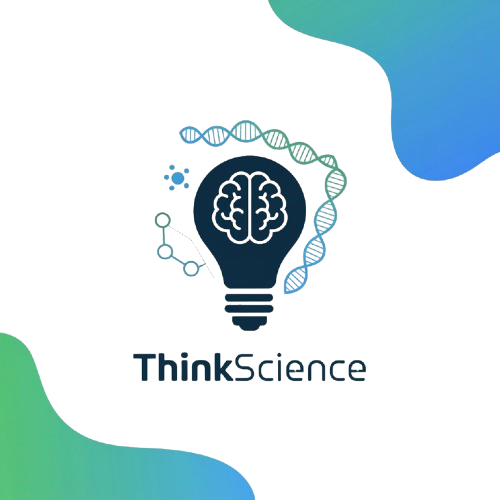Artificial Intelligence (AI) is transforming the way we live and work, sparking both excitement and concern. As AI technologies advance rapidly, they offer unprecedented opportunities to enhance productivity and innovation. However, these advancements also bring potential risks that require careful consideration. This article explores the future of AI, highlighting the balance between embracing its benefits and addressing its challenges.
Understanding the Current Landscape of AI
Artificial Intelligence (AI) is transforming our world in ways we could only imagine a few decades ago. From self-driving cars to virtual assistants, AI is becoming an integral part of our daily lives. As we navigate this rapidly evolving landscape, it’s crucial to understand the current state of AI and its implications for the future.
The Current State of AI
Today, AI is more than just a buzzword; it’s a reality shaping industries and societies. In healthcare, AI algorithms help diagnose diseases with remarkable accuracy. For instance, AI can analyze medical images faster than a human radiologist, potentially saving lives. In my opinion, this is one of the most exciting applications of AI, as it directly impacts human well-being.
In the business world, AI is revolutionizing customer service. Chatbots, powered by AI, handle customer inquiries efficiently, providing quick solutions and freeing up human agents for more complex tasks. This shift not only improves customer satisfaction but also reduces operational costs for companies.
Challenges and Considerations
Despite its benefits, AI presents challenges that we must address. One major concern is the ethical use of AI. As an AI expert, I often ponder the implications of machines making decisions that affect human lives. Ensuring that AI systems are fair and unbiased is paramount. Additionally, the potential for job displacement due to automation is a pressing issue. While AI creates new opportunities, it also requires us to rethink workforce dynamics.
Understanding the current landscape of AI is essential as we look to the future. The Future of Artificial Intelligence: Opportunities and Risks will depend on how we embrace these technologies while mitigating potential downsides. By staying informed and proactive, we can harness AI’s power for the greater good.
Opportunities Presented by AI
The future of artificial intelligence is a landscape filled with vast opportunities. As AI continues to evolve, it opens doors to innovations that were once the stuff of science fiction. From healthcare to education, AI is reshaping industries and creating new possibilities.
Transforming Industries
AI is revolutionizing the healthcare sector by enabling early disease detection and personalized treatment plans. Imagine a world where doctors can predict illnesses before symptoms appear. This is becoming a reality with AI’s ability to analyze vast amounts of medical data. In education, AI offers personalized learning experiences, adapting to each student’s pace and style. This ensures that no child is left behind, making education more inclusive.
Enhancing Everyday Life
AI is also making everyday life more convenient. Virtual assistants like Siri and Alexa have become household names, helping us manage tasks with ease. They remind us of appointments, play our favorite songs, and even control smart home devices. As an AI expert, I find it fascinating how these technologies blend seamlessly into our daily routines, enhancing our quality of life.
However, with these opportunities come challenges. The future of artificial intelligence: opportunities and risks must be carefully balanced. While AI offers incredible benefits, it also poses ethical and security concerns. It’s crucial to embrace these opportunities while mitigating potential risks. In my experience, the key lies in responsible development and deployment of AI technologies.
Potential Risks and Challenges of AI
The future of artificial intelligence is a topic that sparks both excitement and concern. As we embrace the opportunities it presents, we must also be vigilant about the potential risks and challenges. AI, like any powerful tool, can be a double-edged sword.
Ethical Dilemmas and Bias
One of the most pressing challenges is the ethical use of AI. Imagine a world where machines make decisions that affect human lives. This is not just science fiction; it’s happening now. AI systems can inadvertently perpetuate biases present in their training data. For instance, if an AI is trained on biased data, it might make unfair decisions in hiring or law enforcement. As an AI expert, I believe it’s crucial to address these biases to ensure fairness and equality.
Security and Privacy Concerns
Another significant risk is related to security and privacy. AI systems often require vast amounts of data, which can be a goldmine for cybercriminals. A personal anecdote comes to mind: a friend once shared how their smart home device was hacked, leading to a breach of privacy. This highlights the importance of robust security measures. In my opinion, as we advance, we must prioritize protecting user data to prevent such incidents.
The future of artificial intelligence: opportunities and risks are intertwined. While AI offers incredible potential, we must navigate these challenges carefully. By addressing ethical dilemmas and enhancing security, we can harness AI’s power responsibly.
Strategies to Mitigate AI Risks
As we stand on the brink of a new era, the future of artificial intelligence presents both opportunities and risks. While AI promises to revolutionize industries, it also poses challenges that require careful navigation. How do we embrace these opportunities while mitigating the risks? Let’s explore some strategies.
Implementing Ethical Guidelines
One effective strategy is to establish ethical guidelines for AI development. Just like traffic rules keep drivers safe, ethical standards can guide AI creators. For instance, companies can adopt principles that prioritize user privacy and data security. In my experience, when organizations commit to transparency, they build trust with users. This trust is crucial as AI systems become more integrated into daily life.
Continuous Monitoring and Evaluation
Another key strategy is continuous monitoring. Think of it as a regular health check-up for AI systems. By consistently evaluating AI performance, developers can identify potential issues early. I recall a project where regular audits helped us catch a bias in the algorithm before it caused harm. This proactive approach not only prevents problems but also enhances the system’s reliability.
In conclusion, the future of artificial intelligence: opportunities and risks, demands a balanced approach. By implementing ethical guidelines and maintaining vigilant oversight, we can harness AI’s potential while safeguarding against its pitfalls. As an AI expert, I believe that with the right strategies, we can navigate this exciting frontier responsibly.
Conclusion
The journey into the future of artificial intelligence is like setting sail on an uncharted sea. We are both excited and cautious, aware of the vast opportunities and potential risks that lie ahead. As an AI expert, I often find myself pondering the balance between innovation and responsibility.
Embracing Opportunities
AI has the power to transform industries, from healthcare to transportation. Imagine a world where diseases are diagnosed early, thanks to AI-driven analysis, or where self-driving cars reduce traffic accidents. These are not just dreams; they are tangible possibilities. However, with these advancements, we must ensure that AI remains accessible and beneficial to all, not just a privileged few.
Mitigating Risks
While the future of artificial intelligence holds promise, it also presents challenges. One anecdote that comes to mind is a conversation I had with a colleague about AI ethics. We discussed how AI systems, if unchecked, could perpetuate biases or invade privacy. This is why it’s crucial to develop AI with a strong ethical framework. We must ask ourselves: Are we ready to handle the consequences of our creations?
In conclusion, the future of artificial intelligence is a double-edged sword. It offers incredible opportunities but also demands careful consideration of the risks. As we move forward, let’s embrace the potential while remaining vigilant. After all, the future of artificial intelligence: opportunities and risks, is in our hands.






